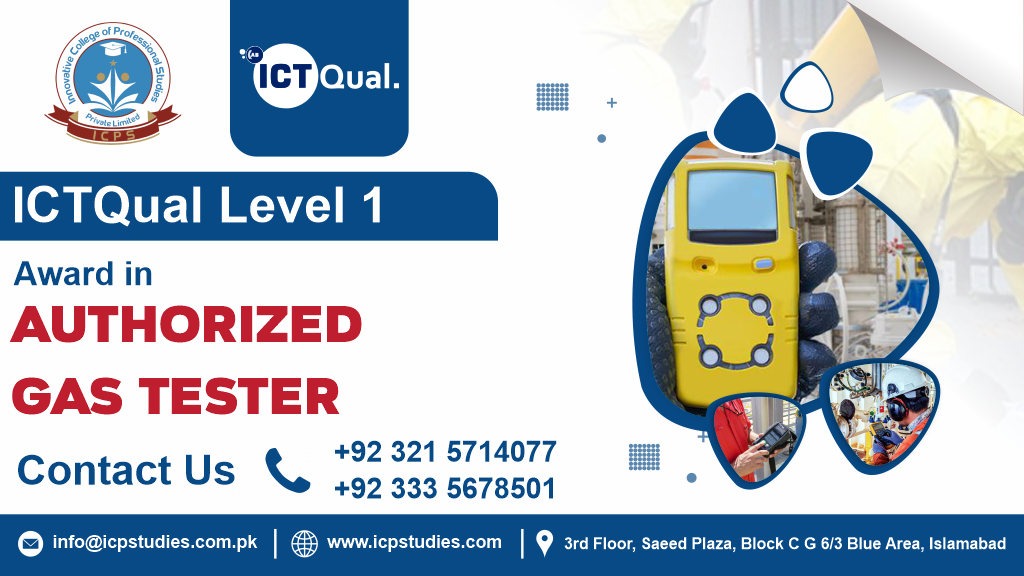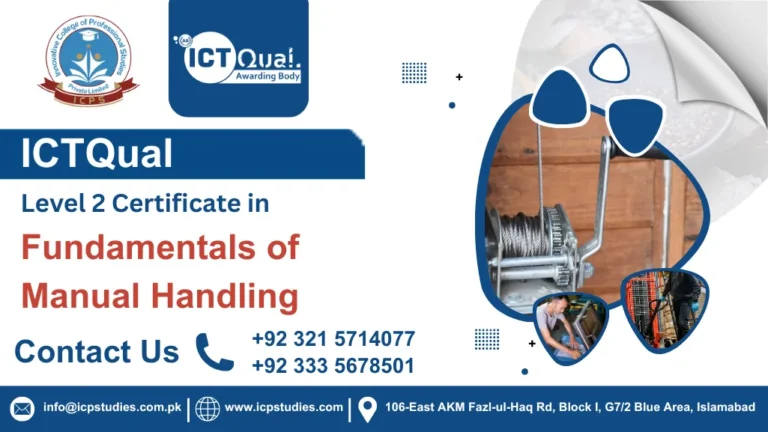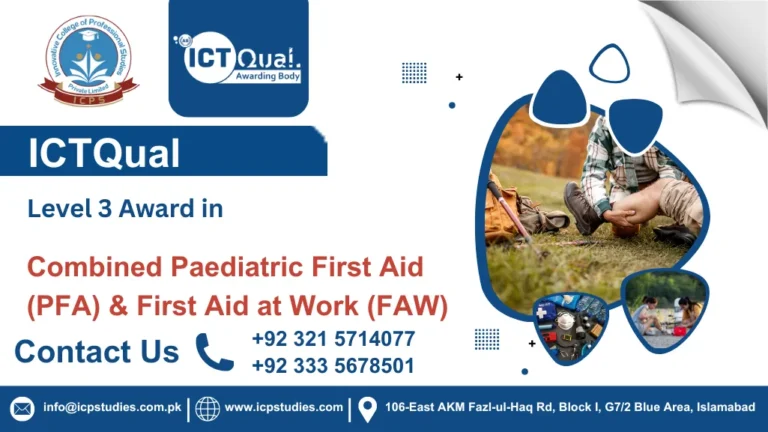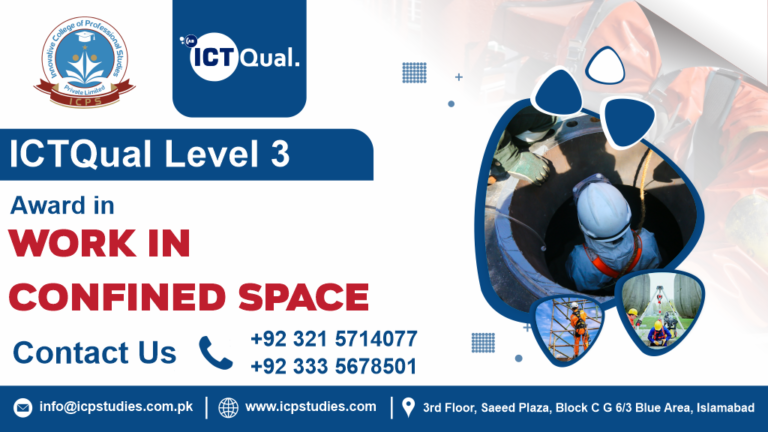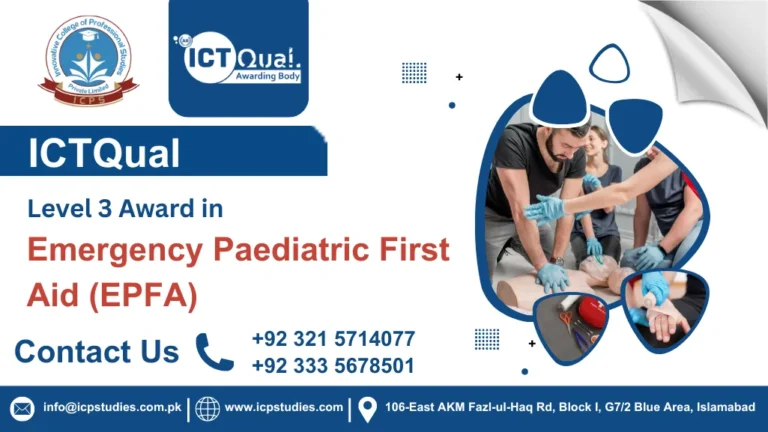In industries where the presence of gases poses potential risks to health and safety, having competent personnel who can accurately monitor and manage gas levels is critical. This is where the Level 1 Award in Authorized Gas Tester becomes indispensable. This qualification equips individuals with the knowledge and skills necessary to perform gas testing duties safely and effectively, ensuring a secure working environment in hazardous settings.
The Level 1 Award in Authorized Gas Tester is designed to provide foundational training for individuals who are involved in gas testing activities within various industries, including oil and gas, petrochemicals, mining, manufacturing, and construction. It focuses on ensuring that gas testing procedures are conducted in compliance with relevant safety regulations and industry standards.
Level 1 Award in Authorized Gas Tester is not just a qualification—it’s a commitment to ensuring safety and mitigating risks associated with gas hazards in industrial workplaces. By equipping individuals with essential knowledge and practical skills, this award plays a crucial role in safeguarding lives, protecting the environment, and promoting best practices in gas testing and monitoring.
All About ICTQual Level 1 Award in Authorized Gas Tester
Course Overview
The Level 1 Award in Authorized Gas Tester is a certification program designed to equip individuals with the knowledge and skills necessary to perform gas testing activities safely and effectively in industrial environments. This qualification is essential in industries where the presence of gases poses potential health and safety risks to personnel and the environment, such as oil and gas, petrochemicals, mining, manufacturing, and construction.
Level 1 Award in Authorized Gas Tester is crucial for individuals seeking to enter or advance their careers in industrial safety and gas testing. It ensures they are well-prepared to handle gas-related risks effectively, contributing to a safer working environment and regulatory compliance within their respective industries.
Study Units
- Introduction to Gas Testing
- Gas Detection Equipment
- Testing Procedures and Techniques
- Safety Protocols and Emergency Response
- Legislative and Regulatory Requirements
Admission Criteria
Aspiring Professionals:
- Those who are eager to enter or advance within [specific field or industry related to the course].
Career Changers:
- Individuals looking to transition into [specific field or industry] from a different professional background.
Students Seeking Specialization:
- Students interested in gaining specialized knowledge and skills in [specific area covered by the course].
Entrepreneurs and Business Owners:
- Business leaders and entrepreneurs aiming to deepen their understanding of [relevant topics covered by the course] to enhance their ventures.
Continuous Learners:
- Lifelong learners committed to staying updated with the latest trends and developments in [specific field or industry].
Pre-requisite Knowledge:
- Candidates should possess foundational knowledge in [relevant subjects] and basic [technical/non-technical] skills.
Ideal Candidate
- Academic Qualifications:
- Applicants must have successfully completed [list specific qualifications such as high school diploma, bachelor’s degree, etc.].
- Minimum Grade Point Average (GPA):
- A minimum GPA of [specify GPA requirement] on a [specify scale, e.g., 4.0] is required.
- Subject Prerequisites:
- Proficiency in specific subjects such as [list relevant subjects, e.g., mathematics, biology, etc.] may be required.
- Work Experience (if applicable):
- [Course Name] may require applicants to have relevant work experience in [specify field or industry] of at least [number of years].
- Language Proficiency:
- For courses conducted in [language], applicants must demonstrate proficiency in [language proficiency test requirement, e.g., TOEFL, IELTS, etc.].
- Additional Requirements:
- [Any other specific requirements such as portfolio submission, interviews, etc.].
- Special Conditions:
- Applicants from [specific category, e.g., international students, mature students, etc.] may have additional requirements.
Note: Meeting the minimum entry requirements does not guarantee admission, as admission to [Course Name] is competitive and subject to availability.
Learning Outcome
Introduction to Gas Testing
- Understand the importance of gas testing in industrial environments to ensure safety and mitigate risks.
- Identify common gases encountered in the workplace and their potential hazards.
- Explain the principles and objectives of gas testing procedures.
- Describe the roles and responsibilities of an Authorized Gas Tester in monitoring and managing gas levels.
Gas Detection Equipment
- Familiarize with various types of gas detection equipment, including portable gas monitors and fixed gas detection systems.
- Demonstrate proficiency in using gas detection equipment to measure and monitor gas concentrations.
- Understand the limitations and calibration requirements of gas detection instruments.
- Interpret readings from gas detectors accurately and effectively.
Testing Procedures and Techniques
- Develop skills in conducting gas tests according to established procedures and protocols.
- Perform calibration checks and functional tests on gas detection equipment.
- Demonstrate competency in sampling techniques and monitoring gas levels in different environments.
- Apply best practices for documenting and reporting gas testing results.
Safety Protocols and Emergency Response
- Identify potential gas hazards and associated risks in the workplace.
- Implement safety protocols to minimize exposure to hazardous gases.
- Demonstrate knowledge of emergency response procedures in gas-related incidents, including evacuation, emergency shutdown, and first aid.
- Coordinate effectively with emergency services and personnel during gas emergencies.
Legislative and Regulatory Requirements
- Understand relevant health and safety legislation, regulations, and industry standards pertaining to gas testing and monitoring.
- Interpret legal requirements and compliance obligations related to gas testing activities.
- Apply knowledge of legislative frameworks to ensure adherence to safety protocols and operational standards.
- Demonstrate awareness of the consequences of non-compliance with regulatory requirements.
FAQs about ICTQual Level 1 Award in Authorized Gas Tester

